Do All States Enforce Background Checks
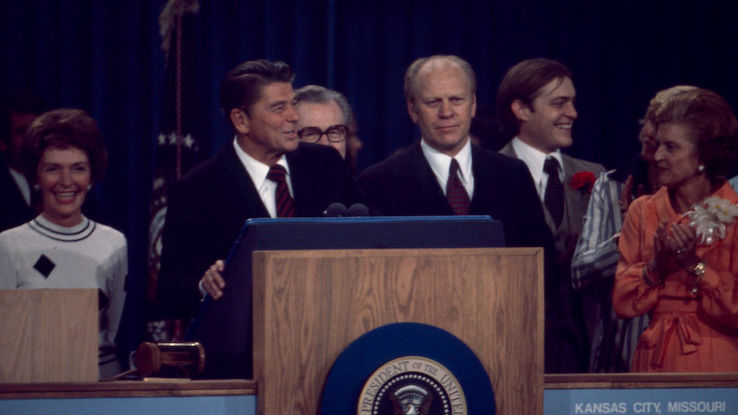
Sometimes it's hard to distinguish fact from fiction, especially when the United states has had a complicated relationship with telling the truth. Throughout the coronavirus pandemic in item, things have been as confusing for everyday people when it comes to protecting themselves and others and taking action to irksome the spread of the disease. With different messages about safe (or lack thereof) coming from unlike levels of government, it'southward been difficult to determine which courses of action are the right ones and which leaders to believe. But this is just one case of the ways lines can become blurred when in that location are discrepancies in the recommendations and guidelines funneling down from presidents and governors.
In the past, there accept been many examples of presidents overruling states and misusing their power, but governors don't accept complete and full decision-making power in regards to certain issues in their states, either. Facts tin exist stubborn things, just and so tin can politicians. That'due south why we're taking a wait at who's actually in accuse of states in times of crunch.
The President Decides When States Can Reopen or Close During Lockdowns
Nope. The COVID-19 pandemic has seen u.s.a. witness enough of power struggles betwixt the White Firm and state governors regarding lockdown orders around the country, and they serve as effective examples of different authorities attempting to proceeds or maintain control. For instance, in mid-April of 2020, Donald Trump stated, "They [governors] tin can't do anything without the approval of the President of the United States." He too wrote on Twitter, "For the purpose of creating conflict and defoliation, some in the Fake News Media are saying that it is the governors' conclusion to open the states, not that of the President of the The states and the Federal Government. Let it be fully understood that this is incorrect…."
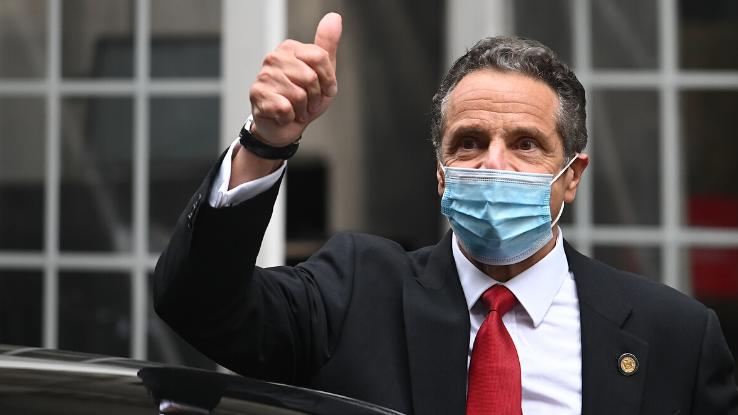
Trump'south statements were completely false. According to the 10th Amendment of the Constitution, "The powers non delegated to the United States by the Constitution, nor prohibited by information technology to the States, are reserved to us respectively, or to the people." This means the president only has powers that are outlined in the Constitution. Equally much as a president is allowed to try to intimidate governors into taking actions like reopening u.s. they lead in the middle of a pandemic, the president doesn't take the legal power to alter state orders.
States adopted their own safe measures in response to the COVID-19 outbreak, but Trump threatened to "override governors" if they didn't reopen churches or businesses. He — or whatsoever president — can't really order state governors to exercise this; it's against the law. A president has no power to ease restrictions or shut down entire states, just governors exercise. And they have the ability to protect the prophylactic and health of the people in their states.
When Somebody Is the President of the Us, Their Authorisation Is Total
False. Information technology's a common misconception that the U.S. President is the most powerful person in the country and the world. Even Trump stated that the president has "total authority," but this is fake news. Legal experts say Trump'due south comment isn't anywhere in the Constitution, and there oasis't been whatsoever provisions to the supreme law to support it.
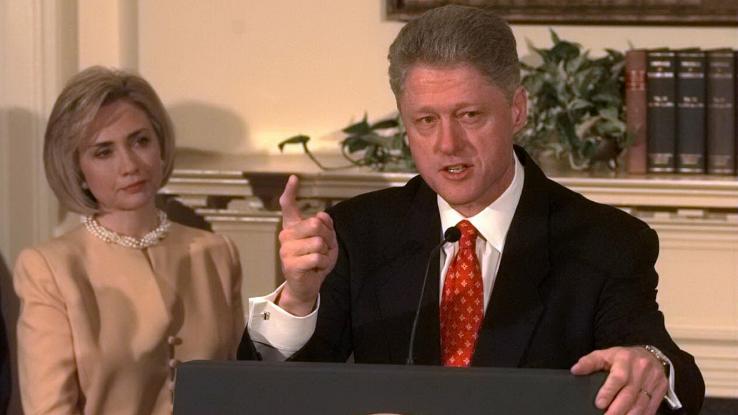
In 1974, Richard Nixon tried to utilize his powers to withhold information (specifically audio tapes) from the public during the Watergate scandal. All the same, the Supreme Court ruled that his executive privilege didn't protect him. Bill Clinton also tried to assert his powers in federal court after his affair with Monica Lewinsky was discovered, but it didn't assistance him either. Police force professor Susan Low Bloch said information technology best: "The president is not a rex. His powers are broad, but they are definitely not 'full.'"
The President Has No Power Over State Governors
Incorrect. The commander-in-primary can transport the armed forces to control states and land governors if the president believes they are involved in a violent uprising or rebellion confronting the regime. This power is granted by the Insurrection Act of 1807, almost famously used by Dwight D. Eisenhower to protect the Trivial Rock Nine on their way to school.
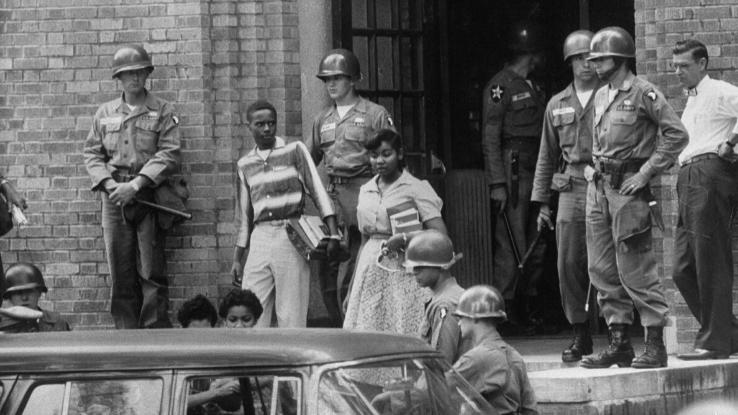
In 1871, Ulysses S. Grant also invoked the Coup Act to suppress the Ku Klux Klan in South Carolina. Federal troops were deployed past Grant again in 1872 due to racial violence across Louisiana following the gubernatorial election. John F. Kennedy sent troops to Southern states to enforce desegregation orders in public schools as well, just that wasn't the merely time he cited the act. Kennedy besides ordered troops to control the Ole Miss riot of 1962 and the Stand in the Schoolhouse Door incident during the Ceremonious Rights Movement.
The President's Control Extends Beyond Laws
True. Despite having no authority to reopen or close states during a public wellness emergency such equally the coronavirus pandemic, the president tin withal touch state governors in of import ways — primarily through social influence. Whether a president's remarks are true or imitation, they have powerful effects. For instance, during the outset of the coronavirus pandemic, people who trusted President Trump looked to him for information and guidance rather than to their state governors. However, Trump had a design of providing false information that led to dangerous outcomes, such every bit suggesting the public inject themselves with disinfectants. These harmful claims can create issues that governors then have to overcome, especially during the pandemic.
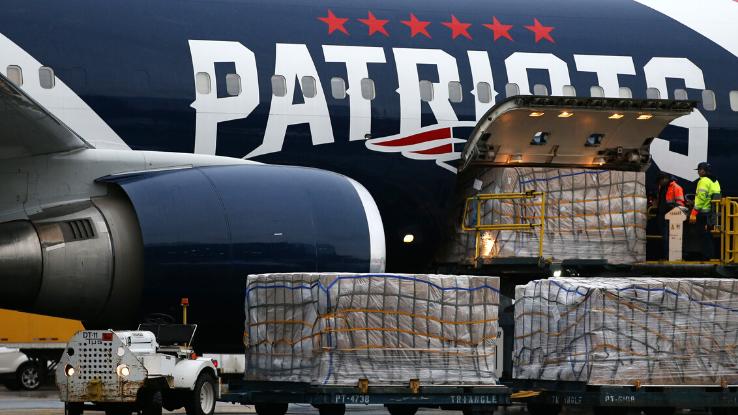
While Trump downplayed the seriousness of the outbreak and politicized basic precautions meant to keep people healthy, governors took the pb in managing the spread of the virus in their individual states. Some states enforced strict stay-at-dwelling orders and encouraged the public to wear confront masks to protect themselves. However, flattening the curve required a grouping effort, and some people refused to comply. Instead, they followed the actions and words of the president, who refused to wear face up masks for the first several months of the pandemic; didn't practice social distancing; and rarely listened to the advice of the country's peak health experts. As a issue, states had a hard fourth dimension beating the virus and keeping people safe.
Trump as well failed to immediately provide ventilators, personal protective equipment and other materials to help states fight COVID-19. Instead, he advised governors to observe their own lifesaving equipment, which led each state to fend for itself. Case in point? Gov. Gavin Newsom turned to Chinese companies for face masks, while Gov. Charlie Baker asked the New England Patriots' possessor to use the team's plane to bring back supplies from China.
A president's viewpoints can also put political pressure on country leaders. If governors don't follow the president's atomic number 82, supporters of that president potentially could meet their governors as enemies and go on to ignore those governors' efforts to go on people rubber. Sometimes, elections are used to sway governors. For case, President Trump suggested that he would want to see leaders run for re-election if they followed his orders, which potentially emboldened governors who weren't interim in the best interest of public health or safety. In the early weeks of the COVID-19 pandemic, Trump besides stated he was simply willing to help governors of blue states if they stopped criticizing him.
These attempts at controlling governors' actions, while transparent and manipulative, did indeed impact their behavior during a time when they were drastic for help. Information technology ultimately showed the kind of control a president can exert without calling on laws to do and so.
During National Emergencies, the President Is Given Complete Control
By and large Untrue. It's actually non the president or state governors who are given command during national emergencies, but Congress. Although the National Emergencies Act, the Stafford Human activity and the Defense Production Act requite the president more ability than normal during a crisis, Congress nevertheless has the final say about many things.
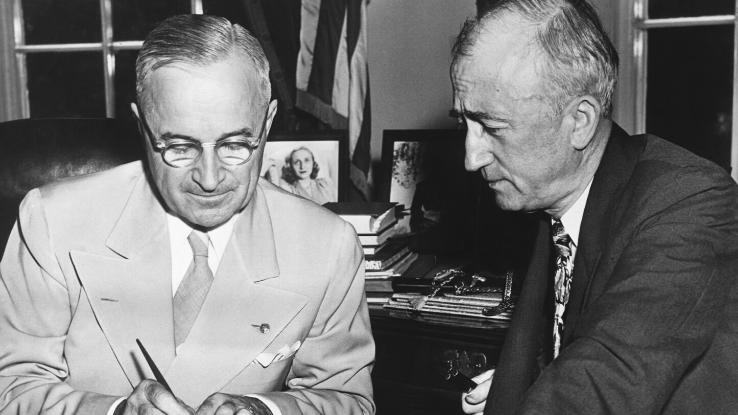
When President Harry Truman tried to laissez passer an executive club to seize and shut downwardly the country'south steel industry during a nationwide steelworkers strike, the Supreme Court blocked his efforts, arguing that Congress and the Constitution didn't grant him the power to do and so. Truman even claimed information technology was a matter of national security, but the Supreme Courtroom disagreed.
Yet, there have been cases in the past in which presidents abused their powers and took control. In 1861, Abraham Lincoln suspended habeas corpus during the Ceremonious War without approving from Congress. Franklin Roosevelt used emergency powers to detain more than than 100,000 Japanese and Japanese-American people in internment camps during World War 2 — although Congress eventually implemented this club itself. However, the fact that instances exist in which presidents acted without regard to their constitutionally conferred ability or to congressional authority doesn't hateful these are new standards that have been prepare that we must accept today.
Despite these examples, laws have been amended to check and moderate the president'southward powers. When it comes to determining who has more than authority betwixt the president and state governors, information technology depends on the situation. Nevertheless, today, the Constitution and Congress agree the highest legal authorisation and power to exercise the most command.
Do All States Enforce Background Checks,
Source: https://www.reference.com/history/fact-check-power-president-state-governors?utm_content=params%3Ao%3D740005%26ad%3DdirN%26qo%3DserpIndex
Posted by: thomashinticts1956.blogspot.com


0 Response to "Do All States Enforce Background Checks"
Post a Comment